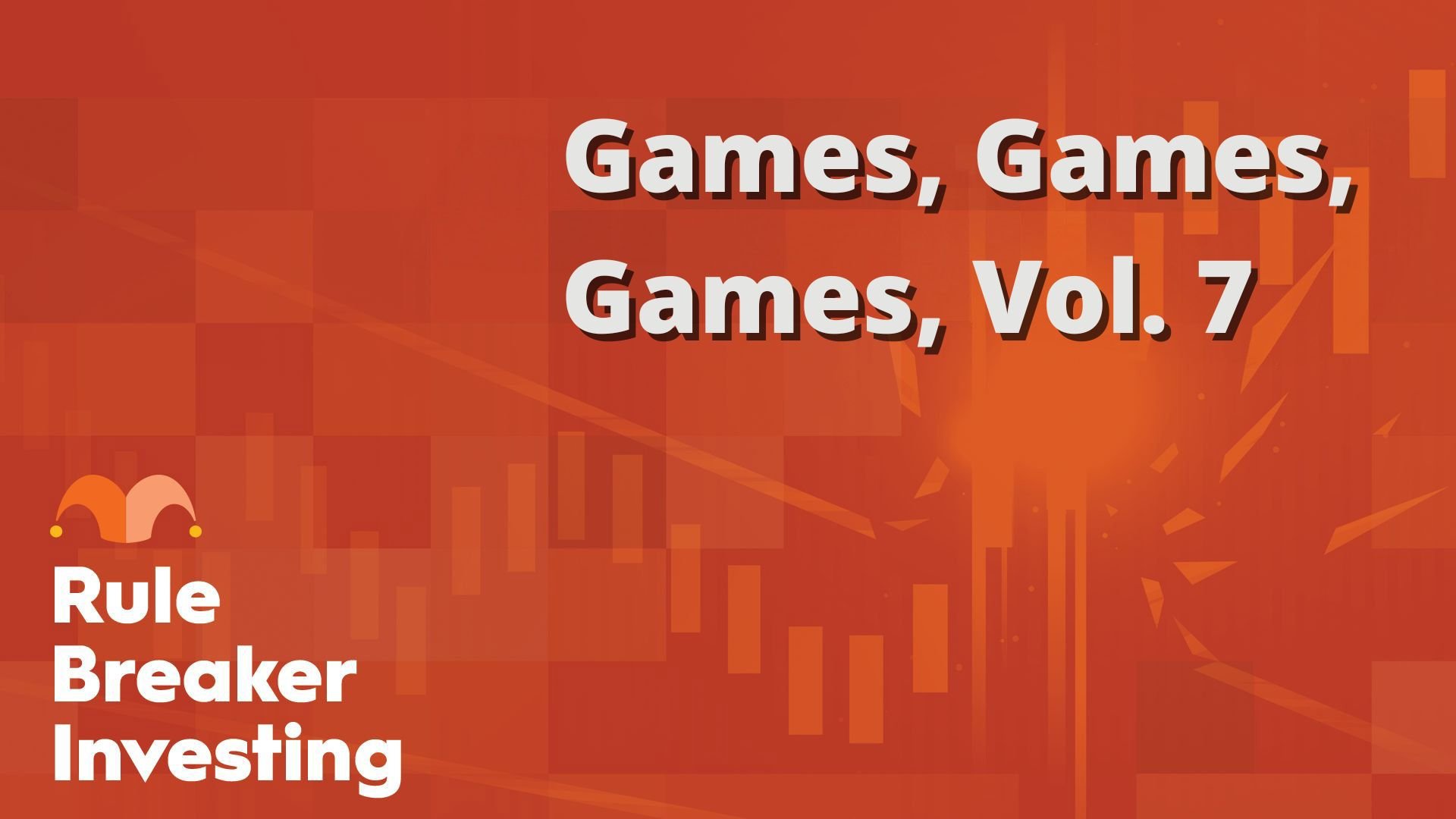People love pithy advice and simple slogans. If you can boil an idea down to less than a handful of catchy words, you have a much better chance of making it sound plausible, wise, and right. So the investing cliche of "buy low, sell high" has become something of a mantra. But it's not actually all that useful of one. Far better for your returns is the strategy Motley Fool co-founder David Gardner has often suggested, which involves buying excellence and holding it.
And as he notes in this segment of the Rule Breaker Investing "Great Quotes" podcast, he was hardly the first to elaborate on that type of method. Phil Fisher, author of the great investing book Common Stocks and Uncommon Profits, did it back in the 1950s.
A full transcript follows the video.
This video was recorded on Oct. 24, 2018.
David Gardner: Great Quotation No. 2: This one comes from one of my favorite investment writers. An investor who wrote a great book. I was thinking about him recently [today] having not thought about him in some years because I was saying hello to Nick Sciple. Nick is a new Fool. I have a new Fool coffee with every one of our new Fools who come through Fool HQ. I've done that for a couple of decades. It's always a pleasure to see our new employees and what they're doing to help our cause to make the world smarter, happier, and richer.
And for some of you who listen to Motley Fool podcasts, you'll recognize that Nick does an Industry Focus podcast recently having taken over the microphone. He's a new Fool but one who has more exposure than most Fools because he's a podcaster. Nick was [talking] to me today [about] Phil Fisher who wrote a great book, Common Stocks and Uncommon Profits and it's a classic. It turns out the year was 1958. I double-checked my math, here.
Nick said to me, "You know, a lot of what he says in there is how you and we invest at The Motley Fool. We might think we're doing The Fool thing. That we're radical and doing a new thing. A lot of how we think about things, like the best time to sell is never and those kinds of lines -- a lot of those derive from Fisher."
And I said to Nick, "First of all, thanks for reminding me of that, because of the few investment books I've read in my lifetime, one of them that I did read is Phil Fisher's book and I thought it was excellent." So before I give his quote, here, for Great Quotation No. 2, I'm going to say that dear Fool, if you've never read Common Stocks and Uncommon Profits, I highly recommend you do so. Yes, it may read a bit dated, because it was written before the internet; yup, about 40 years before the internet showed up, but it really contains so much good thinking that feels fresh and like it was written yesterday.
Anyway, here's Great Quotation, No. 2. Great Quotation No. 2: "Finding the really outstanding companies and staying with them through all the fluctuations of a gyrating market proved far more profitable to far more people than did the more colorful practice of trying to buy them cheap and sell them dear." That's Fisher -- one of his writings, a great quotation -- reminding us that it is, in fact, as the old saw goes, time in the market and not timing the market. That's not a Fisher saw. That's just an old investment phrase. But that's the way to win.
So I'm obviously keying back to Great Quotation No. 1, "Exit, pursued by a bear," encouraging you not to exit because again, with Phil Fisher, "Finding the really outstanding companies and staying with them through all the fluctuations of a gyrating market proved far more profitable to far more people."
I don't think I need to say a lot more about this. I think it speaks for itself. It kind of keys to my first quotation, and it's one of our primary points that I've made on this podcast for a few years, now, and that Fool.com and so many of our writers, advisors, and analysts have made that point for a few decades.
I do want to say, before I move onto Great Quotation No. 3, what other investment books I would recommend or I have enjoyed, and I mentioned earlier that I haven't really read that many. I don't typically find investing books that interesting to read. I did read, How to Read a Financial Report. I believe that's by John Tracy.
And since I was an undergrad English major, and I never took an accounting course, as I graduated college already a stock market investor, I thought, "You know, I should get a better handle on financial statements." That was a great way for me of uniting my understanding of what's on an income statement, which is basically showing the profits of a company [or losses]. And then second what's on a balance sheet, which is basically the bank account for that company. And then finally the cash flow statement, which is kind of like looking at cash in and cash out from that bank account. Like what you're spending on a daily basis.
So those three financial statements -- the income statement, the balance sheet, and the statement of cash flows -- that's a wonderful book to understand how they work together. It speaks to sort of a fifth-grade math level; things like addition, subtraction, division, and multiplication which is about as complicated as I like my math to get. And by the way, I really do like math. I think we should all like math. But that book stays right there with us and I think can really help anybody get a better grip on financial statements, so I definitely want to mention that one.
Of course, I want to mention Peter Lynch's book, One Up on Wall Street, which was formative for me. This was written about 30 years ago, so while many of the companies that he's writing about will sound like old-time companies that you may not have heard of anymore; again, the lessons and his wonderful wit comes through and helps all of us as investors. He also wrote, Beating the Street as a follow-up. That's another book that I've read.
I'll mention three other books really quickly. One is William O'Neil's book, How to Make Money in Stocks. I've said it's both some of the greatest and some of the worst writing that I've ever seen in a single book to help and hurt investors. Where I think O'Neil is brilliant -- O'Neil, by the way, the founder of Investor's Business Daily, a publication I've certainly appreciated over the course of my life -- where he has it nailed is he looks at studies that show what the great stocks are of an era, and he looks at the traits that lead to those stocks. And in many cases he teaches us contrary things.
So when I first read, How to Make Money in Stocks by William O'Neil, I was probably more focused on 52-week lows as the time that I would start to look to buy a stock. Like the stock is at a low, so I should be more interested, I thought, in the stock because of that reason. But in fact O'Neil shows through studies, and some really good writing, that you should be looking at 52-week highs because [this is one of my themes for 2018 on this podcast] "winners win!" What do winners do? That's right. They win.
And, as it turns out, that's often true of stocks. So stocks at 52-week highs typically go on to make more highs and new highs in the coming months or years vs. stocks that are bouncing around from low to high and back to low again. So I like to find companies that grow and I'm happy to pay for them when they're at their 52-week high. That's what O'Neil convinced me.
However, a lot of his book includes advice about trying to time the market and guessing where the market's going. I hope you didn't take me too seriously, earlier, when I said I thought we might be in the fourth month of a bear market because first of all, I don't care that much about it. I'm going to be invested anyway. And second, I really don't know.
But I think O'Neil tries to persuade you that you can know, and he uses a whole bunch of different metrics that, taken together, read confusingly to me. There's too many different ways or indicators of figuring out where the market's headed. He also advises [and I think this is really bad advice] to never take a big loss. So if a stock drops 7%, he's often said and written in the past you should just exit that regardless of the research that you did, or what you believe in the company because you want to avoid those losses.
And I hope I've demonstrated through my work at The Motley Fool and through this podcast that taking losses is fine. It's natural and in a lot of ways I say we need to lose to win. I'm not going to belabor that point here because I've made it elsewhere.
The last two books I want to mention quickly. Benjamin Graham's book, The Intelligent Investor; Benjamin Graham, of course, the great influence on Warren Buffett. I read about half of that book as a young man and I just didn't keep reading it. I found it pretty boring, backward looking, and its methodologies around valuation while interesting, never compelled me. And in a lot of ways, Rule Breaker Investing succeeds because a lot of other people follow Benjamin Graham.
And I can't not mention Jack Bogle, one of my personal heroes. It's somebody that I've had on this podcast before. I've never really read any of Bogle's investment books. I'm not a huge index fund fan, even though we, here, at The Motley Fool have turned many people onto index funds as a better answer to the mutual funds that they owned before the simplicity and low cost of a good index fund.
But what I love Bogle for is his emphasis on character and his thinking about business. So a book like, Enough, while not really an investment book I thought I should mention briefly, here. I'm not giving you my Mount Rushmore of investing books because I really haven't read enough ever to be able to sort through and have a grand Mount Rushmore.
In closing on this one, I find myself reading books often about business, not about investing. Or about culture, or life, or technology, or the future; again, as opposed to reading investing books. I'm sure your mileage may well vary. We're all different, but I'm just sharing out how I think about these things.





